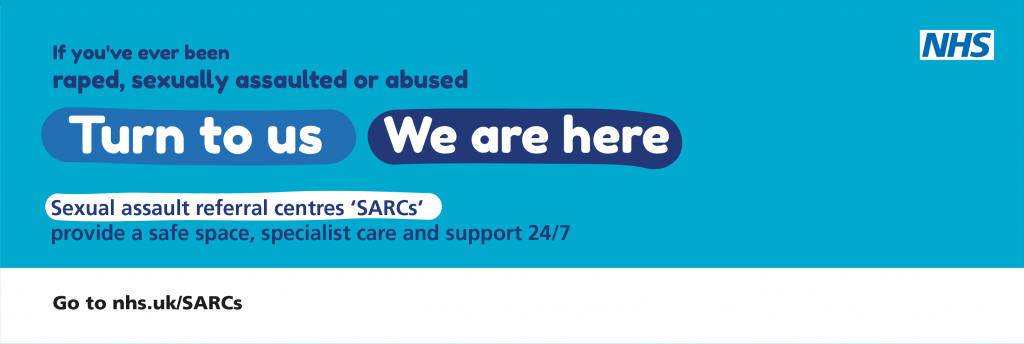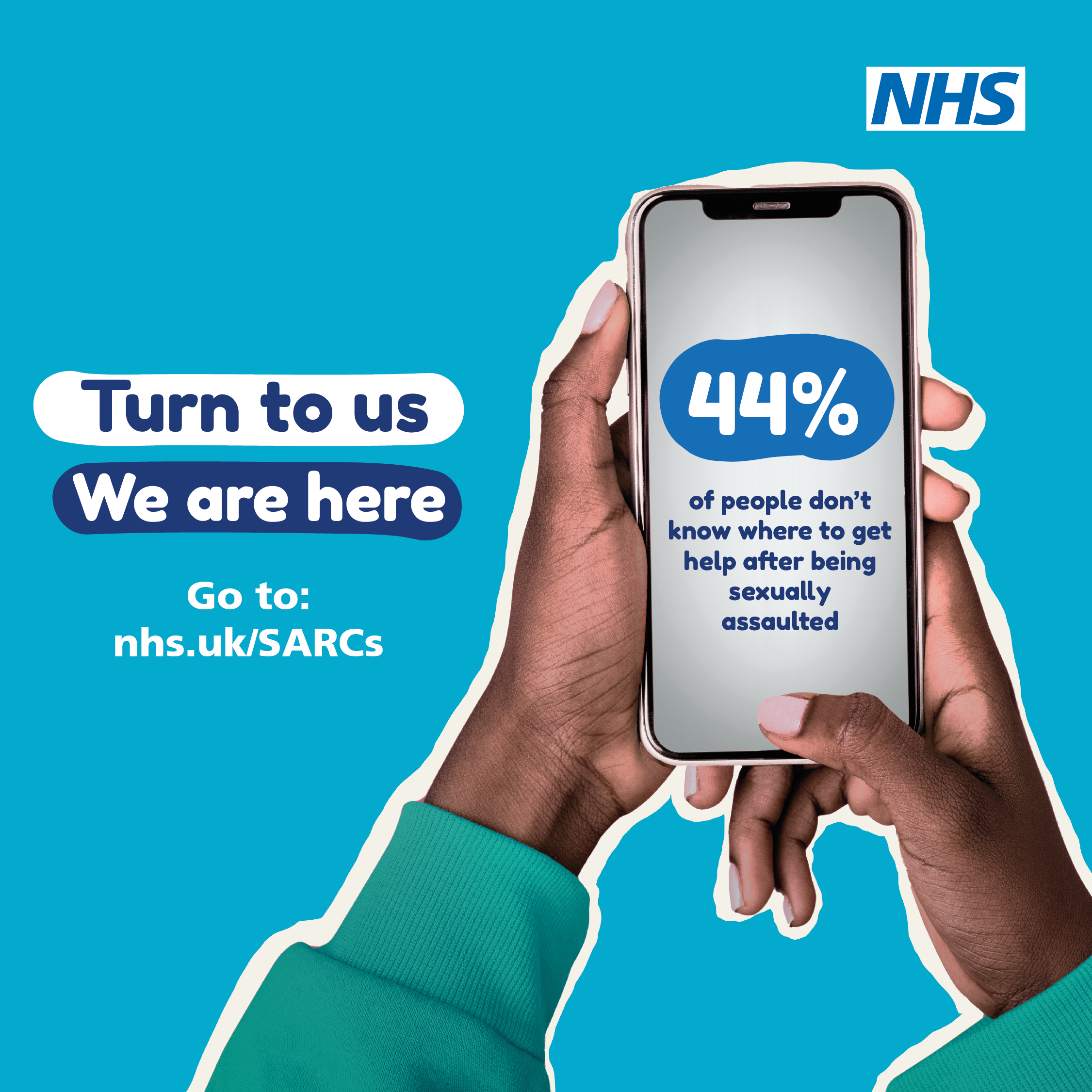NHS SARC Campaign
The NHS has launched a new campaign to raise awareness of Sexual Assault Referral Centres (SARCs) – specialist NHS services that provide a safe space and dedicated care for anyone who has been raped, sexually assaulted or abused.
SARCs offer a range of services, including crisis care, medical and forensic examinations, emergency contraception and testing for sexually transmitted infections. They can also arrange access to an independent sexual violence advisor, as well as referrals to mental health support and voluntary sector sexual violence support services.
The campaign aims to highlight these vital NHS support services, with new data of over 4,000 respondents in England finding that over half of respondents (56%) who have been sexually assaulted or abused did not seek help from any organisation or service after the incident, and 46% citing fear of being believed as the biggest barrier to not accessing services.
Nearly half (44%) of those responding also say they don’t know or aren’t sure where to get help if they had been sexually assaulted, and 72% are currently unaware of the support available via the NHS.
This highlights the crucial need to raise awareness of SARCs, which are available for everyone 24/7 and regardless of when the incident happened.
If you have been raped, sexually assaulted or abused and don’t know where to turn, search ‘sexual assault referral centres’ to find out more or head to www.nhs.uk/SARCs to find your nearest service.
Statistics
- 56% of people who’ve been sexually assaulted or abused have not sought help.
- 44% of people don’t know where to get help after being sexually assaulted.
- 72% of people are unaware of NHS specialist sexual assault services.
- 46% of people don’t seek help for sexual assault due to fear of not being believed.
Recent research commissioned by Mankind UK in 2021 found that:
- Half of men had had unwanted sexual experiences.
- 1 in 7 men had been coerced into sex.
- 1 in 10 men had experienced rape or non–consensual penetration.
- Research also suggests that boys and young men are less likely to report abuse and exploitation and they remain underrepresented in specialist services and underreported within criminal justice services (https://www.barnardos.org.uk/research/hidden-plain-sight-soping-study-sexual-exploitation-boys-and-young-men)
- Men are also less likely to speak to close social contacts. The Mankind Initiative helpline have reported 61% of the men who call have never spoken to anyone before about the abuse they are suffering (https://www.mankind.org.uk/statistics/statistics-on-male-victims-of-domestic-abuse/)
LGBTQ+
- 1 in 5 (17%) LGBTQ+ people have experienced sexual violence (Stonewall).
- Almost half of gay and bisexual men in Britain have been sexually assaulted, a survey by SurvivorsUK found. The rate of sexual assault among gay and bi men is 45% – 10 times that of the general male population, according to the survey of 505 gay and bi men by SurvivorsUK, a charity supporting male survivors of sexual violence.
- The UK survey found that only 14% of gay and bi victims reported sexual assault to the police, with many fearing they would be judged or disbelieved.
- 37% of gay and bisexual men felt they could not speak to anyone after experiencing sexual assault.
- Over a third of gay and bisexual men reported experiencing sexual assault in a bar or pub.
- Sexual violence experienced by LGBT+ people can be motivated by homophobia, biphobia, transphobia and acephobia. It can be perpetrated by non-LGBT+ people or it can happen within LGBT+ relationships and communities (https://www.1in6.uk/unwanted-sexual-experiences/the-1-in-6-statistic/)
- International studies also indicates LGBT+ people are nearly four times more likely than non-LGBT+ people to experience violent victimisation, including rape, sexual assault, and aggravated or simple assault. In addition, LGBT+ people are more likely to experience violence both by someone well-known to the victim and at the hands of a stranger (UCLA Williams Institute)
With these statistics in mind it is incredibly important to raise awareness of the support available to survivors, you never know who may need it.


